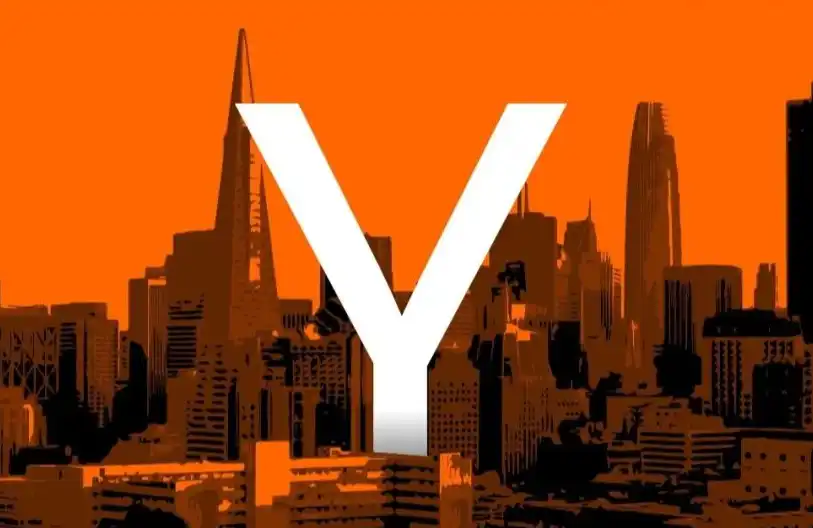2 weeks 3x, it's time to learn about the Stacks ecosystem.
On March 1st, Stacks native token STX defied the bearish market sentiment and surged above $1, with a 24-hour increase of 17.41%. In this bull market, the Bitcoin ecosystem has been the focus of capital attention, and with the support of this trend, Stacks has maintained an upward trend for three consecutive weeks. As of now, the maximum increase of STX in the past three weeks has reached 268.39%, although there is still a certain gap compared to its historical high of $3.25, STX's recent performance is definitely one of the best in this bull market. BlockBeats has summarized the main projects in the Stacks ecosystem, including wallets, DeFi, and various popular dApps.
Wallet
Xverse
Xverse is a cryptocurrency wallet built on Stacks and supports the Ordinals protocol. Users can manage both Bitcoin assets (including BTC and Bitcoin NFTs) and Stacks-based assets through the wallet. Additionally, the wallet has built-in stack functionality, allowing users to earn Bitcoin rewards by stacking STX.
BlockBeats Note: The stack function is based on the consensus mechanism Proof of Transfer (PoX) of Stacks. Stackers participate in the operation of the Stacks network by locking STX and receive Stacks' anchored chain token (i.e. Bitcoin) as income.

The wallet has a simple UI, and the wallet creation process is similar to many EVM-compatible wallets. It also uses mnemonic phrases to backup and restore the wallet. For EVM wallet users who are used to using MetaMask, this undoubtedly lowers the threshold for using the wallet. After creating the wallet, two addresses will be generated simultaneously. One is a Bitcoin address used to receive and send Bitcoin assets. The other is a Stacks network address used to manage Stacks-based assets.
Send Ordinals NFT via Xverse wallet
The wallet is currently available on App Store and Google Play, as well as a Chrome extension version.

Ryder
Ryder is a social hardware wallet that allows users to obtain digital identities, conduct DeFi transactions, and bring NFTs into real life. The project's vision is to eliminate the complexity of the Web3 experience and bring more users into the Web3 field. Currently, the wallet is in the pre-sale period, and according to the official website, the wallet will support social recovery account function.

Hiro Wallet
Hiro is a development tool company that provides support for developers on the Stacks blockchain. Hiro Wallet is one of their products.
Hiro Wallet is a wallet application built on Bitcoin. It currently supports Ordinals and will soon support the Lightning Network.

Hiro Wallet has many convenient built-in features. Users can directly use credit cards, debit cards, or even bank transfers to purchase STX within Hiro Wallet, and then directly participate in staking within the wallet.

Currently, this wallet supports browser extension versions for Chrome, Firefox, and Brave, as well as desktop versions for MacOS, Windows, and Linux systems.
The browser extension version can connect to applications, purchase STX, mint and purchase NFT, and use Ledger hardware wallets. The desktop version can participate in staking to earn Bitcoin and use Ledger hardware wallets to protect assets.
DeFi
ALEX
ALEX is a DeFi protocol built on the Bitcoin network through Stacks smart contracts. Its development drew inspiration from the design of Balancer V2. The mainnet version of the platform currently includes features such as swapping, lending, staking, and yield farming.
It is worth noting that ALEX's original trading and lending functions are all based on AMM, but the project has now launched an order book version on the testnet. However, the liquidity issue has not yet been resolved at this stage.

Arkadiko
Arkadiko is an open-source, non-custodial liquidity protocol built on the Stacks smart contract. Users can collateralize assets to mint stablecoin USDA, earn interest on deposits, and borrow assets on Stacks. The governance token for Arkadiko is DIKO, which can be obtained by adding liquidity to the pool through collateralized assets.

Arkadiko aims to improve asset efficiency on the Stacks blockchain and establish USDA as the mainstream stablecoin in the Stacks ecosystem, enriching Stacks' DeFi ecosystem.
Zest Protocol
Zest Protocol is a decentralized lending platform based on Bitcoin. Zest's smart contracts enable Bitcoin liquidity providers to earn Bitcoin income through lending pools. For borrowers, Zest can directly provide on-chain Bitcoin loans based on their balance sheets.
Zest Protocol started development in June 2022, completed its first audit in August 2022, launched its public testnet in October 2022, completed its second audit in December 2022, and the mainnet is currently not yet online.

Dapp
BTC.us

BTC.us is a website that provides decentralized domain name services similar to ENS on Ethereum. Users can request .btc domain names here and complete registration by sending two transactions to the BNS smart contract on the Stacks chain. Domain names can include all lowercase letters and special characters, and the current price is 5 years 2 STX. Users can use .btc domain names to log in to DApps and send and receive STX.
Console
Console is a Web3 social chat room platform, aiming to become the Discord of the Web3 field. Users can log in using Hiro Wallet or MetaMask. Console will verify their community identity based on their ownership of tokens, NFTs, or .eth and .btc domain names, in order to eliminate the existence of robot accounts.
Console is currently an early-stage project. According to official sources, the Windows/Mac desktop dApp of Console is expected to go live today, and the mobile versions for iOS and Android are also under development.

BlockSurvey
BlockSurvey is a decentralized anonymous survey platform. Its biggest feature is the "anonymous survey" function, which allows survey participants to not disclose any personal information, providing assurance for the authenticity of the research.

In the existing market research system, anonymity of participants is not guaranteed. The BlockSurvey team presented many negative cases in the early stages of the project, such as employees being fired after participating in "anonymous" surveys conducted by their companies. The emergence of BlockSurvey can effectively solve these problems.
BlockSurvey officials stated that the benefits of absolute anonymity include:
· Improve response rate· Ensure the authenticity of data· Protecting the privacy of participants· Create a fair competitive environment.· Cultivate a culture of openness and trust
Gamma
Stacks' NFT marketplace, formerly known as STXNFT, was renamed Gamma on April 27, 2022. Gamma is the third letter of the Greek alphabet, representing the third stage of the internet: Web 1.0, Web 2.0, and the current Web3.

This platform aims to bring together collectors, creators, and investors to explore, trade, and showcase NFTs in the Bitcoin ecosystem. The Gamma platform consists of three core products: an NFT marketplace, Launchpad, and a social platform. Gamma.io supports both the primary and secondary markets for Bitcoin NFTs.
Users can use Gamma bot to create their own unique digital works, which can be collected or sold. Users can use the Bitcoin NFT creation tool without code to create successfully in a few minutes. Gamma.io solves the pain point of high technical content, complexity, and time-consuming in creating NFT on the Bitcoin network. However, the secondary market still accounts for the majority of platform sales. Each sale includes the artist's royalties and market commissions, which vary depending on the artist and collection.
Owl Link

Owl Link is a decentralized bio-link tool that allows users to create and share links to their online profiles and content. Users need to register a .btc domain from BTC.us to create an Owl Link, and publishing/registering an Owl Link on the Stacks chain requires 10 STX.
Owl Link plans to issue a series of 10,000 NFTs, with each NFT representing the governance ownership of the Owl Link protocol. Holders can receive up to 90% of the revenue share from Owl Link's sales (which will gradually decrease to 50% over 24 months and remain unchanged). The minting date for this NFT series has not yet been determined, with a presale price of 150 STX and a public sale price of 200 STX. The team stated that 20% of the funds raised from NFT sales will be used for initial protocol development, while the remaining 80% will enter the Stacks' staking pool, with BTC earnings regularly distributed to NFT holders participating in staking.
Welcome to join the official BlockBeats community:
Telegram Subscription Group: https://t.me/theblockbeats
Telegram Discussion Group: https://t.me/BlockBeats_App
Official Twitter Account: https://twitter.com/BlockBeatsAsia


 Forum
Forum Finance
Finance
 Specials
Specials
 On-chain Eco
On-chain Eco
 Entry
Entry
 Podcasts
Podcasts
 Activities
Activities
 OPRR
OPRR








